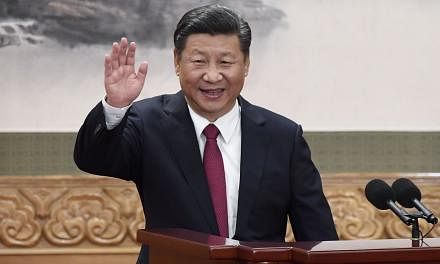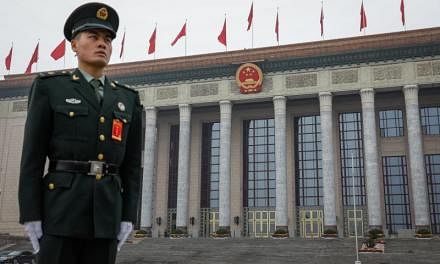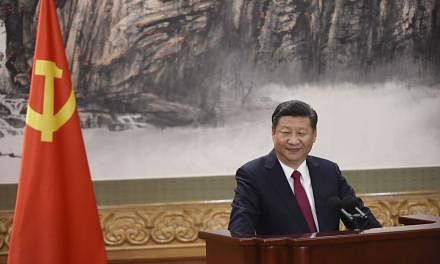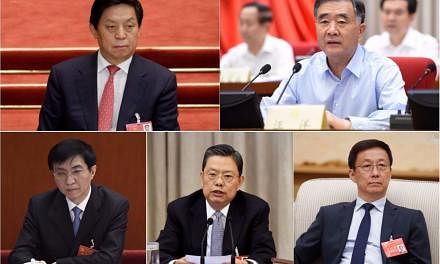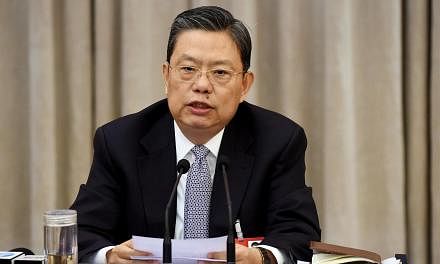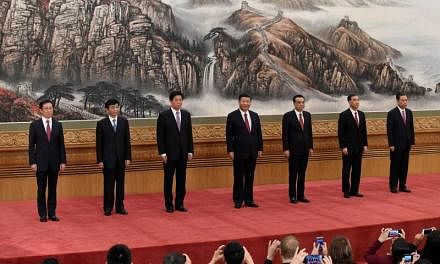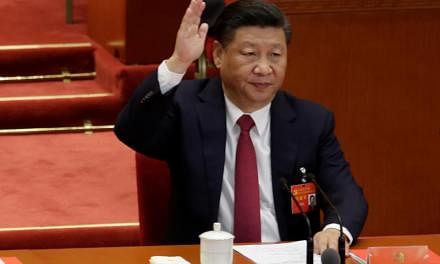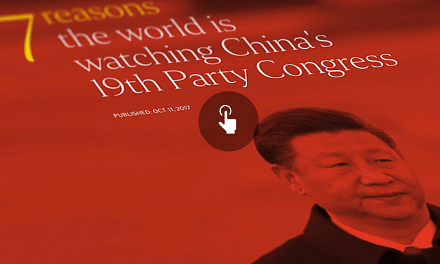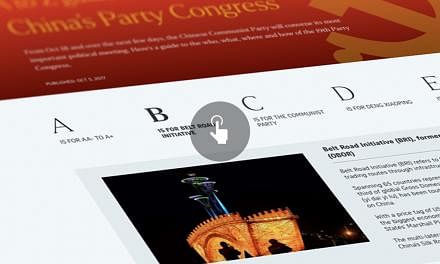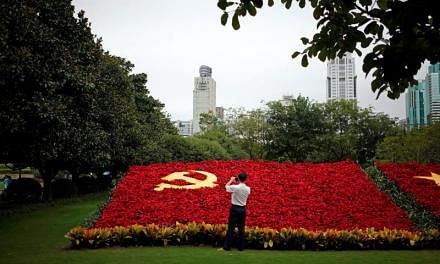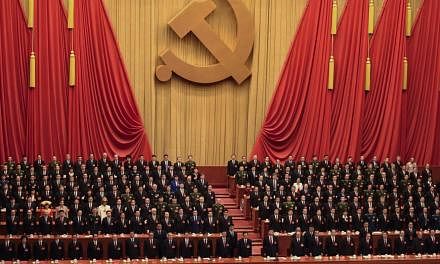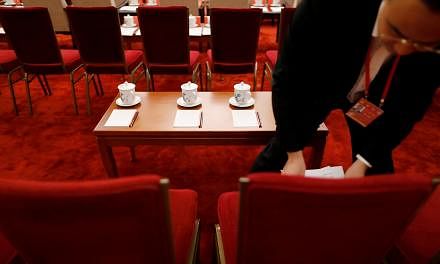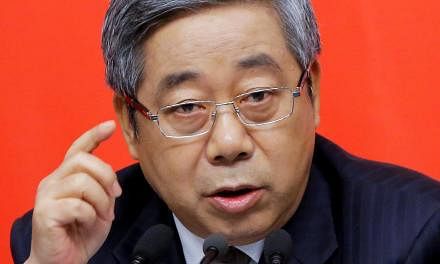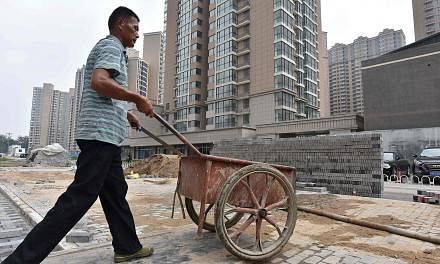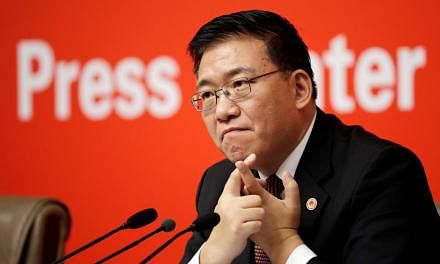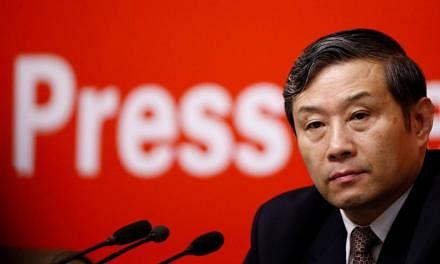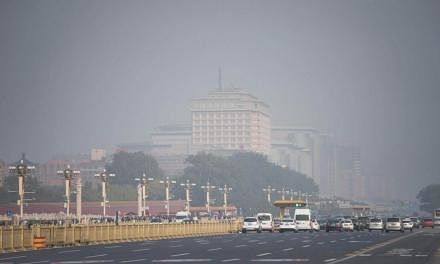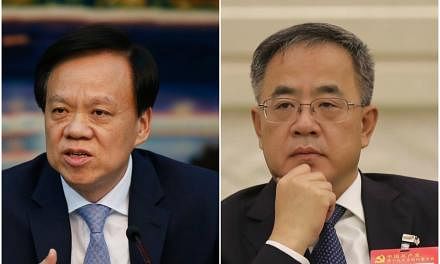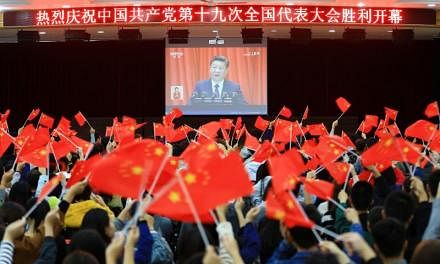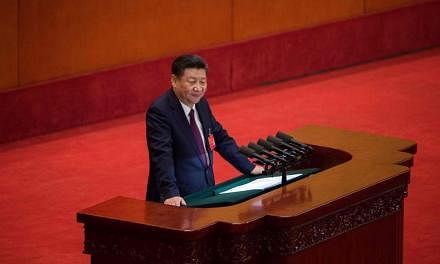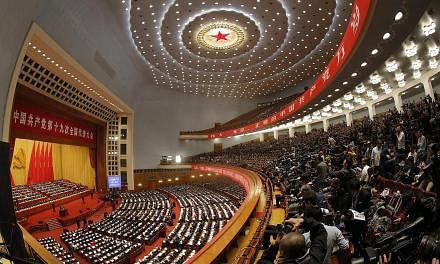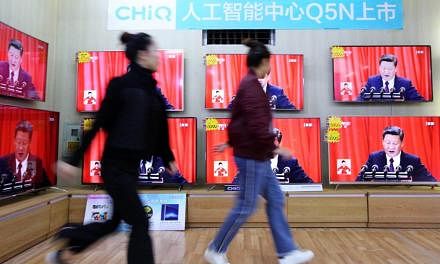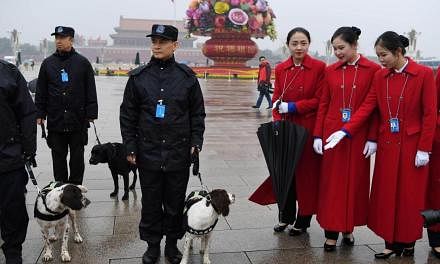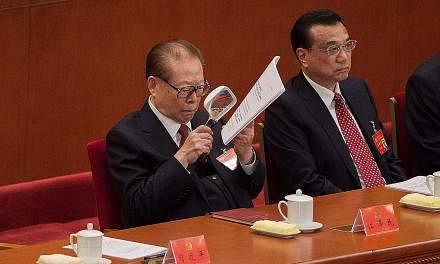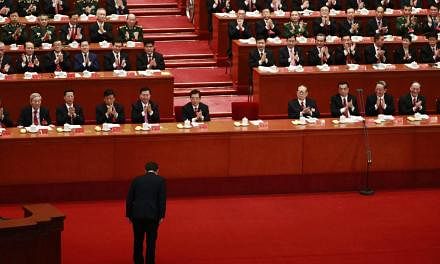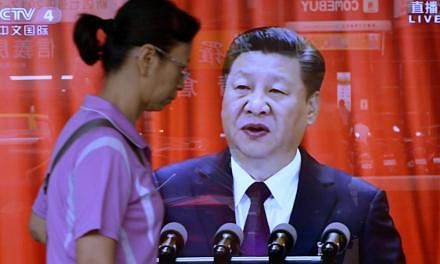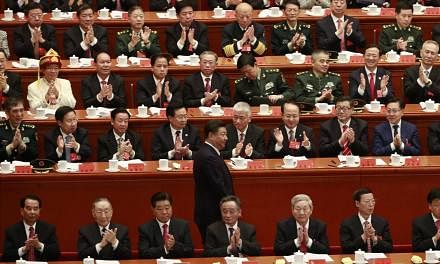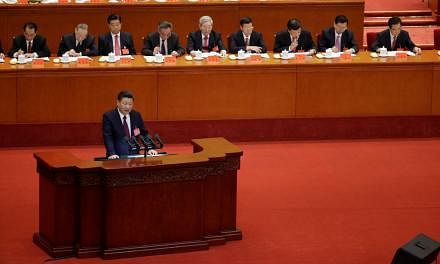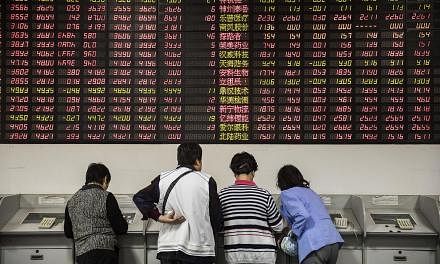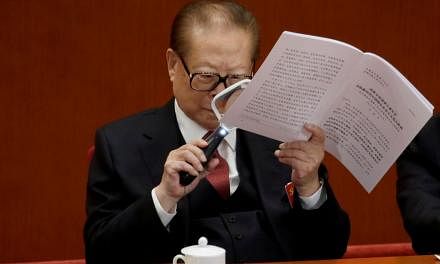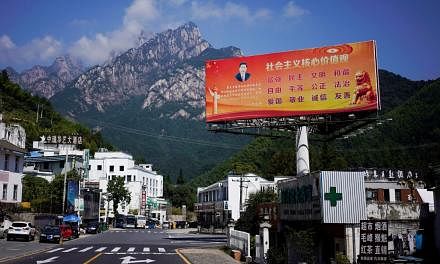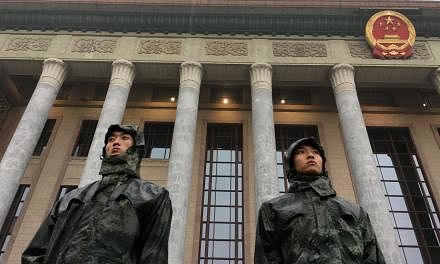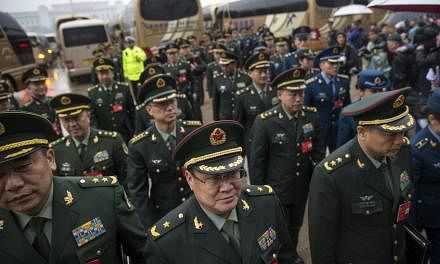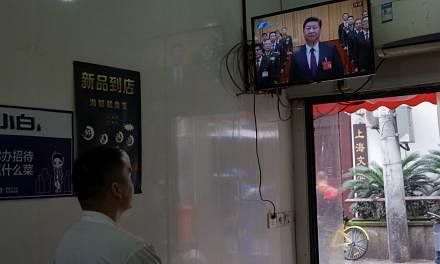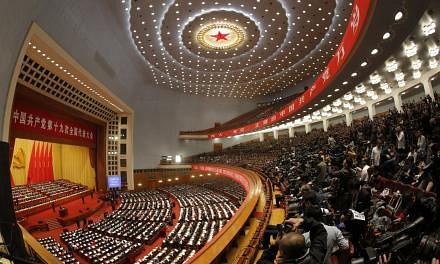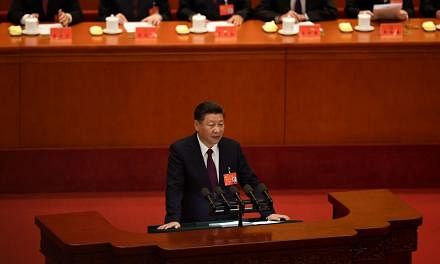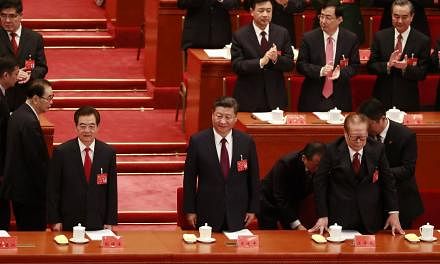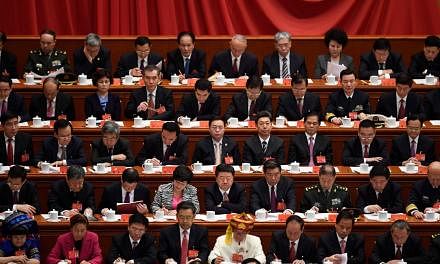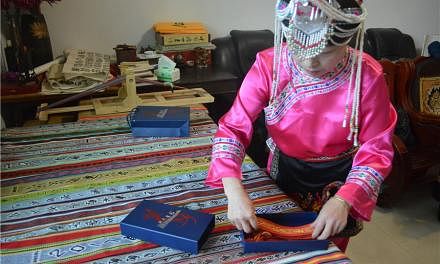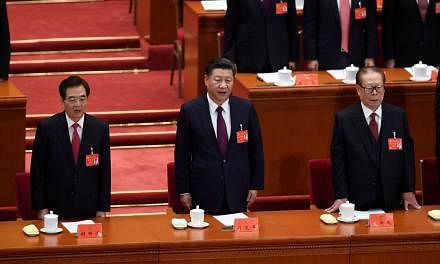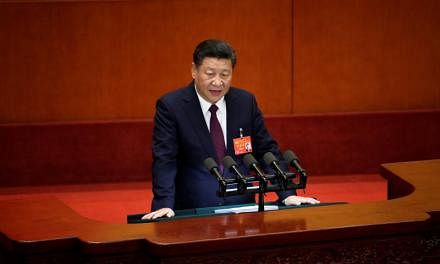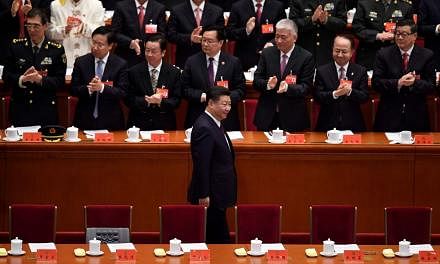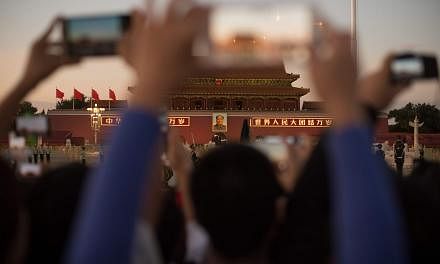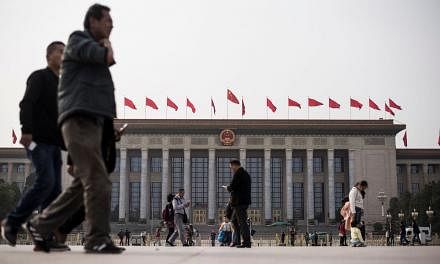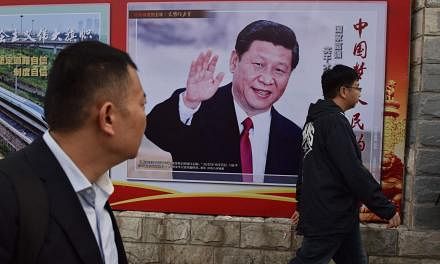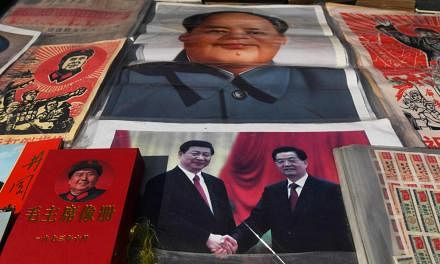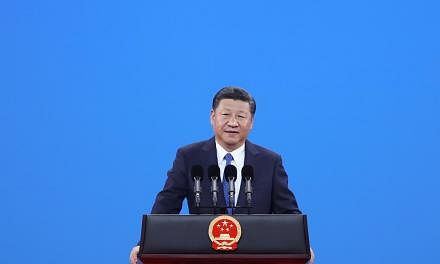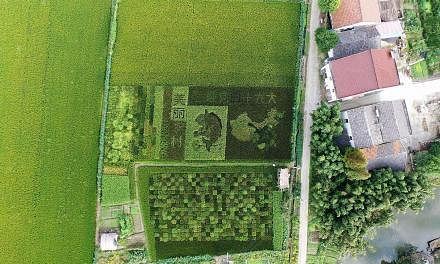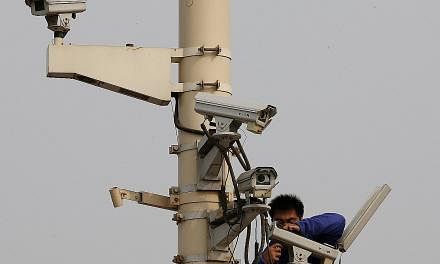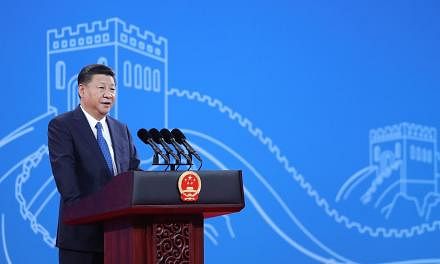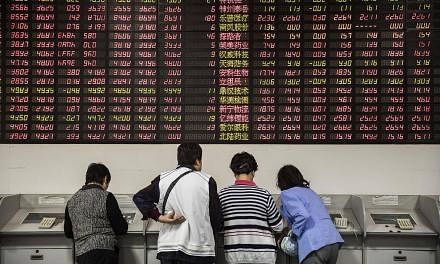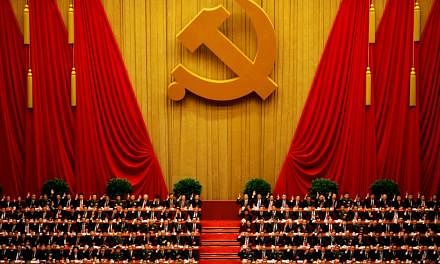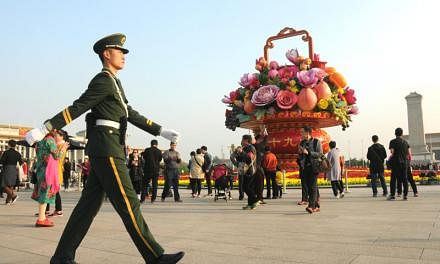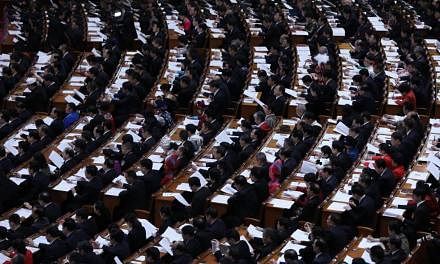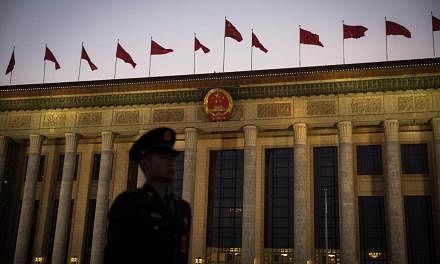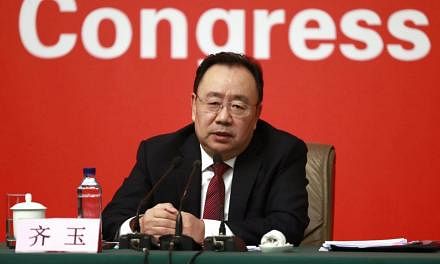BEIJING (REUTERS) - China's ruling Communist Party will scrap the practice of secretive interrogations known as shuanggui, President Xi Jinping said on Wednesday (Oct 18), part of broader reforms of its anti-corruption architecture.
Cadres accused of graft and other disciplinary violations are subjected to extrajudicial detention, isolation and interrogation by the party's much-feared Central Commission for Discipline Inspection (CCDI).
The CCDI hands cases over to police and judiciary only for prosecution. International rights groups have raised concerns of torture, including sleep deprivation, being used to obtain confessions.
In a speech during Wednesday's opening of a key twice-a-decade party congress, Mr Xi said shuanggui, which applies only to Communist Party cadres, will be replaced by "detention". He did not elaborate and it was not immediately clear what the distinction between the two will be.
Officially, China describes shuanggui as an internal disciplinary practice that requires officials under investigation "to cooperate with questioning at a designated place and a designated time".
In practice, those under investigation are routinely held incommunicado and without access to legal representation, and a number of high-profile deaths while in custody led to discussion of reforming the system as early as 2013. New trial rules released by the CCDI in January made mandatory video and sound recordings for the entire interrogation process.
"Those summoned are deprived of liberty for days, weeks, or months, during which time they are repeatedly interrogated and often tortured," a Human Rights Watch report said in 2016.
It said at least 11 people, according to media reports, had died under shuanggui since 2010.
The move to scrap the practice is part of wide-ranging legal reforms and the creation of a new National Supervisory Commission that will take over from the CCDI and merge multiple anti-graft units into a single body.
The new agency will also expand the anti-graft campaign's purview to include employees at state-backed institutions who are not necessarily Communist Party members.
"This will ensure that supervision covers everyone in the public sector who exercises public power," Xi said.
Since coming to power in 2012, Xi's signature anti-corruption drive has jailed or otherwise punished nearly 1.4 million party members and he has emphasised the importance of improving China's rule of law architecture.
In his congress address, Xi said China would keep up with the "irreversible" momentum of the anti-corruption campaign, and announced a central leading group responsible for overseeing China's law-based governance.
"The fight against corruption has formed an overwhelming posture and strengthened in development," Xi said in the 3½-hour speech broadcast live on state television.

